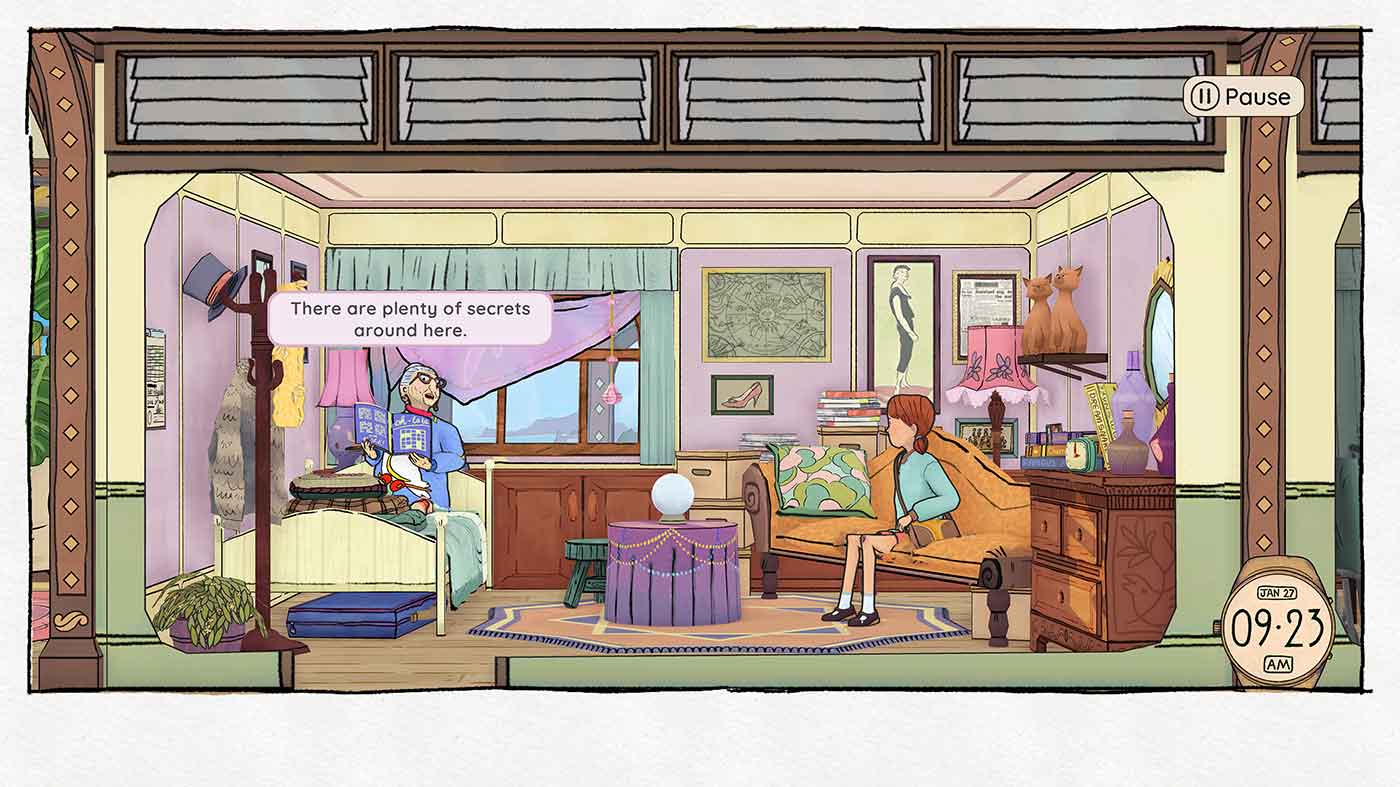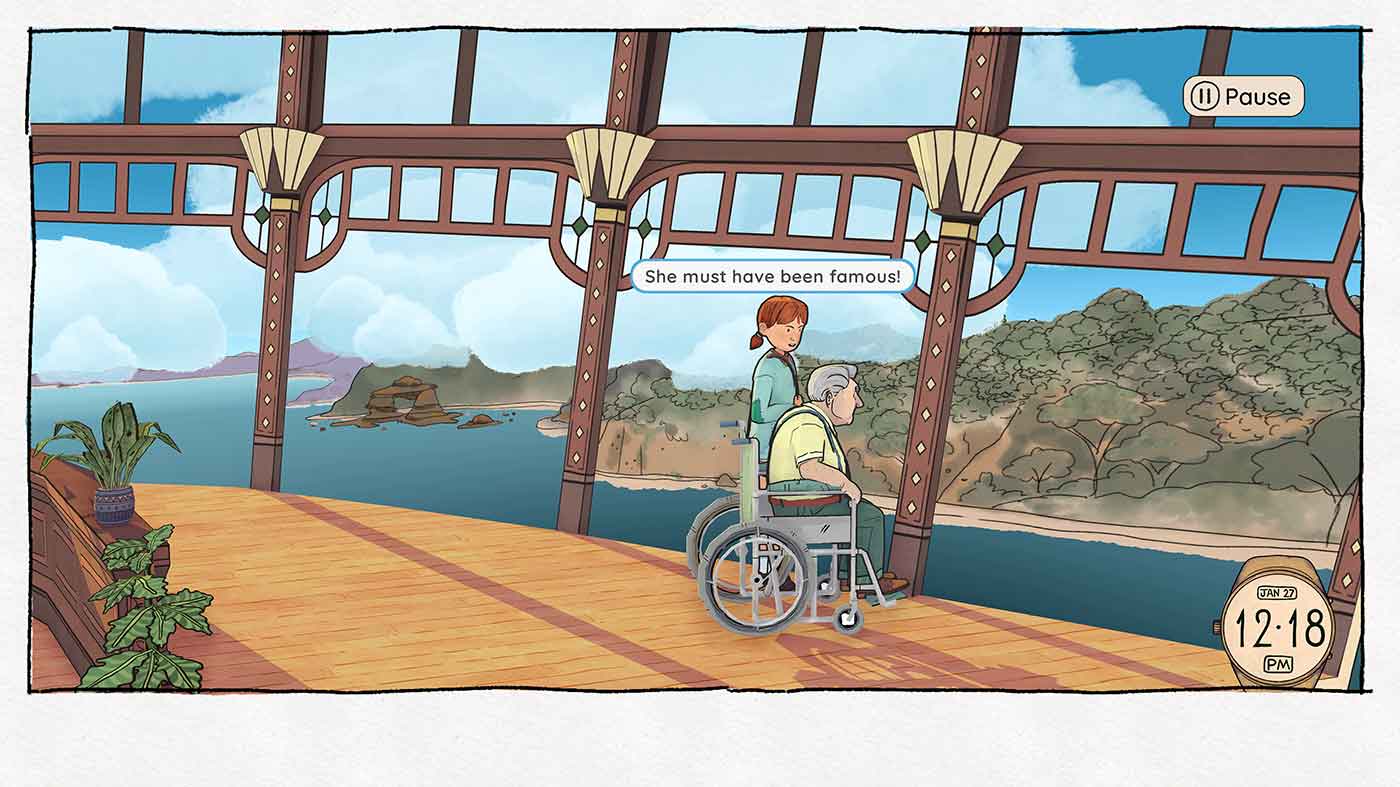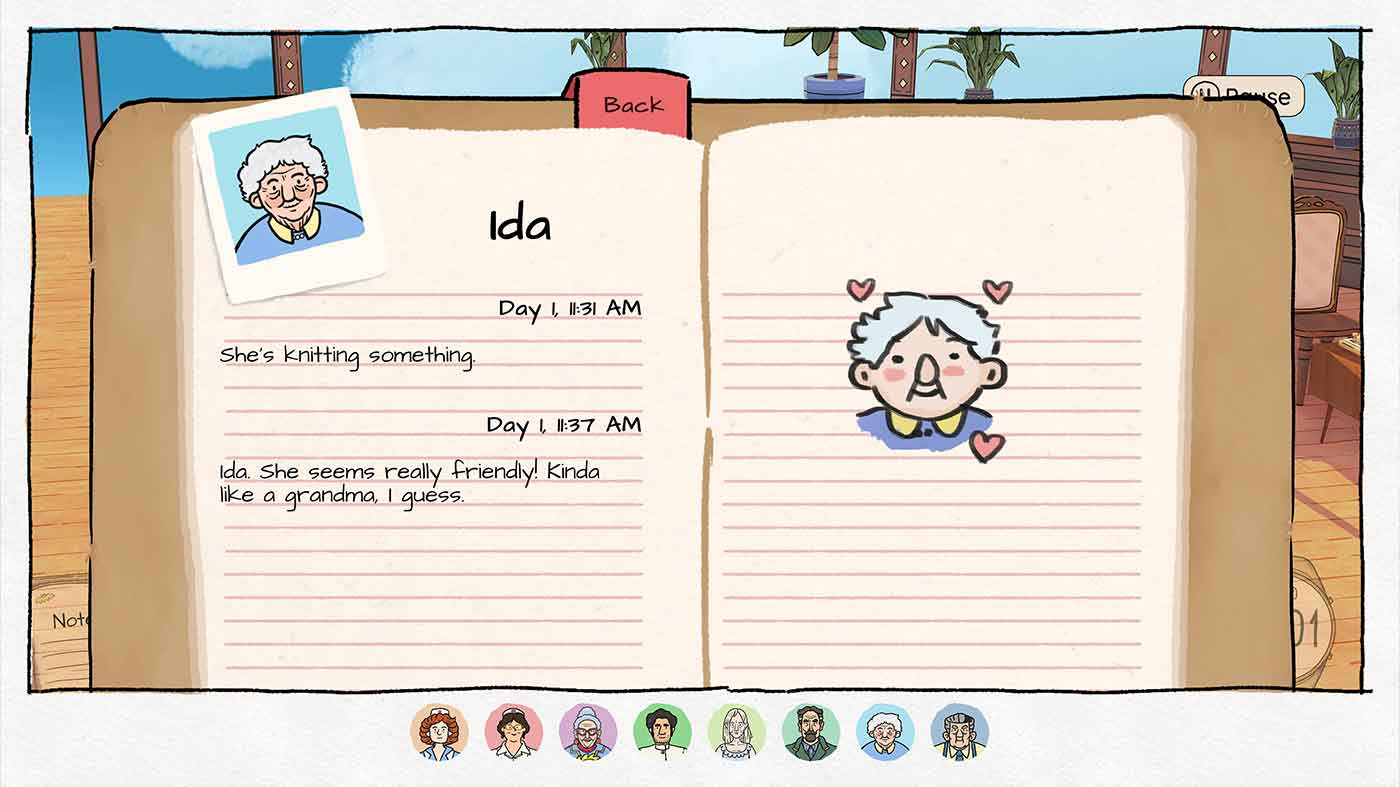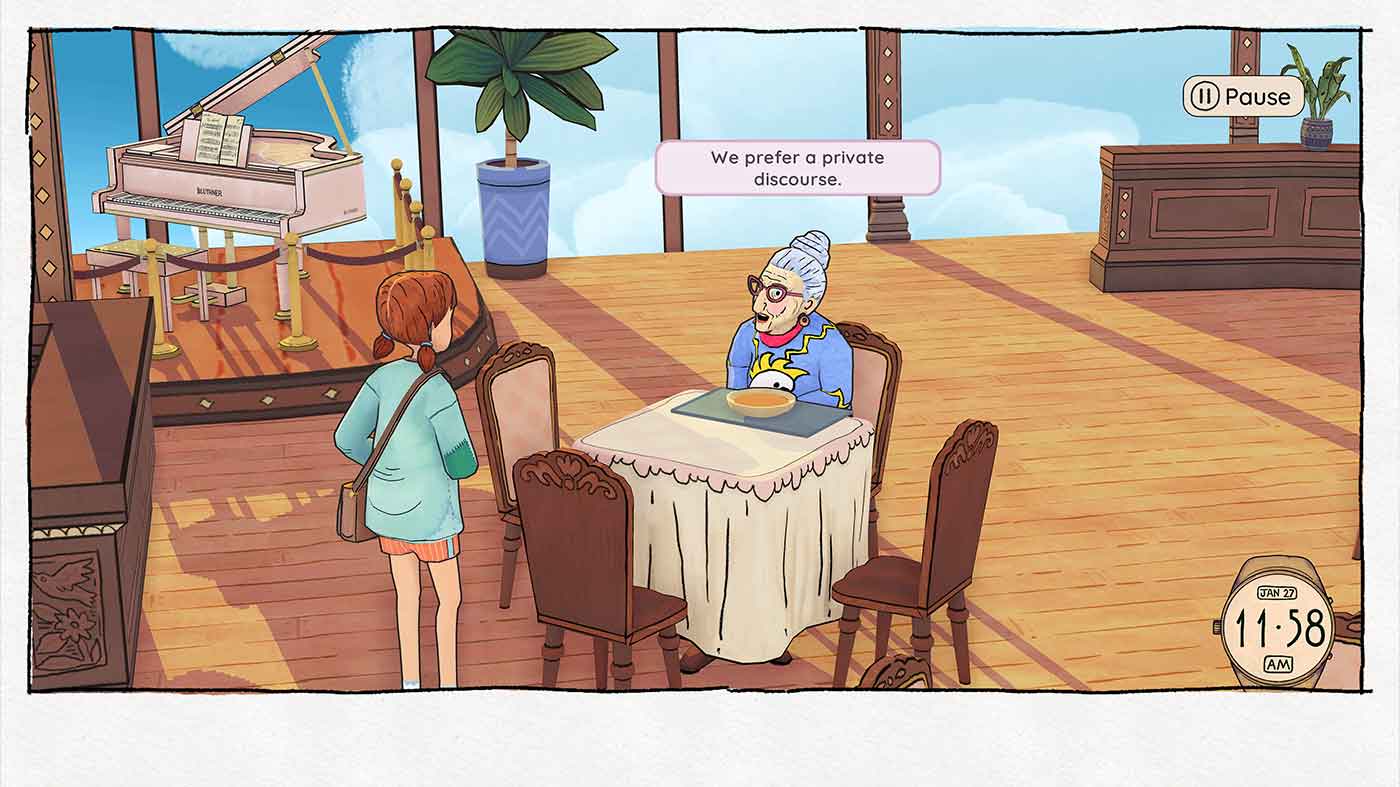I don’t think I’m alone in being more conscious of time these days. These past couple of years haven’t been our collective best, a daily reminder that very little can be taken for granted. Likewise, we have witnessed our national healthcare system pushed to the limit and then some, another unavoidable example of who we are and what we stand to lose. What this nationwide freefall has left me with is a keen awareness of time and the indispensable nature of human kindness. Wayward Strand is a game that fundamentally understands this too. The ways we use and waste time, the passage of it, the warmth of memory and the pain of an old wound. It achieves this vision while being earnestly Australian too, with a familiar vibe that encompasses this simple but effective narrative experience.
Wayward Strand sees you fill the shoes of Casey Beaumaris, a young teenager trying to make the most of her school holidays in the summer of 1978, Australia. Bored and restless, Casey has thrown herself into her writing and is looking to pen the ultimate expose for the school paper. Her subject is the magnificent airborne hospital that floats gently above the red earth, filling the blue skies with its lavish and omnipresent design. Joining her mother for the long weekend aboard the ship, Casey must use the three days to both investigate the ship and try to help the elderly patients who occupy its aesthetically rich halls.

Melbourne based developers Ghost Pattern have been open about the intentional limitations of Wayward Strand’s narrative design. Aboard the ship are over a dozen folks to interact with, but as Casey’s three days march forward, she won’t have time to discover everyone’s stories. The game wants you to make choices and make your peace with what you may miss, a built-in hook for replayability and a nice mechanical riff on the game’s thesis on time itself. To help you keep track of all these threads, Casey comes equipped with a journal for noting routine times, locations and points of interest. You can also be quickly directed toward a resident by clicking on their portrait in the journal and following an arrow.
Guiding Casey through the ship is a smooth experience, requiring no more than basic inputs to move about and interact with the game’s many friendly faces. Using simple arrows at the bottom of the screen, Casey will either walk or jog left or right, stopping to allow contextual options like going up or down stairs, entering a patient’s room or talking to a passerby. Casey can also be a bit of a snoop, hiding behind walls to eavesdrop on conversations and overhear clues or hints as to where to go next. It’s all very open, a freeform experience that allows the player to dictate their own path and pace.

Once you’ve chosen who you’d like to spend some precious time with, Casey enters into a charming conversation wheel system with them. Baseline options usually allow you to start a chat with branching dialogue, have a bit of a nosey around their belongings, leave or simply sit a while and allow the air to settle. Which of these you lean toward will vary based on the person you’re trying to talk with. Some patients prefer a slower-paced conversation, the silence you leave allowing them to bring up topics of their own choosing. Others will gleefully answer your questions, even if it’s with polite bemusement. Others still will tell you to bugger off if they’re too tired.
Wayward Strand does a terrific job of situating you in Casey’s reality thanks to its writing. Every single one of the people you can meet on the good ship feels unique and fully realised. By the end of my first day onboard I had already fallen in love with the kindly, slow talking Mr. Pruess, and promptly decided to walk the other way when Esther Fitzgerald would be moseying down the hall. You’ll undoubtedly find your own favourites, your own stories and worlds that appeal to you and make you compelled to spend your time in your own manner. The collision of the game’s Australian nature and its gorgeous writing results in a feeling not too dissimilar to visiting your grandparents when you were a child. A luxury so few of us have these days.

The writing is in turn elevated by Wayward Strand’s amazing cast of voice actors who bring their respective quirky characters to life. Nancy Curtis plays Casey with pitch-perfect youthful earnestness, a layered portrait of a young woman confused, intrigued and frustrated by the world around her. Elsewhere a litany of Australian stars grace the halls, including familiar faces from iconic shows such as Neighbours, Blue Heelers and more. All of these performances go a long way to realising Wayward Strand’s unique Aussie world, a place that manages to capture the light, and grit, of people just trying their best.
Wayward Strand is also obviously a game with things on its mind. The heightened reality of its airborne hospital is something of a cosy trap. A warm and vaguely familiar glow obscures some deeply meditative words on medicine as a system, the power of people, war, and of course, death. Ghost Pattern’s public decrying of crunch culture in game development feels of a piece with the commentary in the game. A definitive and gently amusing riff on how certain systems can steamroll good people and the damage caused in turn. It never shies away from the harsher truths of the human condition but is always ready to offer a shoulder when it all feels a bit overwhelming.

While the game is a visual delight and a moving meditation on emotional subjects, it can sometimes waver in its ability to grasp the player. Wayward Strand is a strikingly slow experience in ways I often adored but its pacing being player-driven can lead to some slumps. The inability to save is the real killer here, as the game only autosaves after the completion of a full day at the hospital, approximately an hour and a half in real time. I can appreciate that this is done to avoid save scumming the narrative but in practice, it can lead to some tiring pushes or even lost progress.




